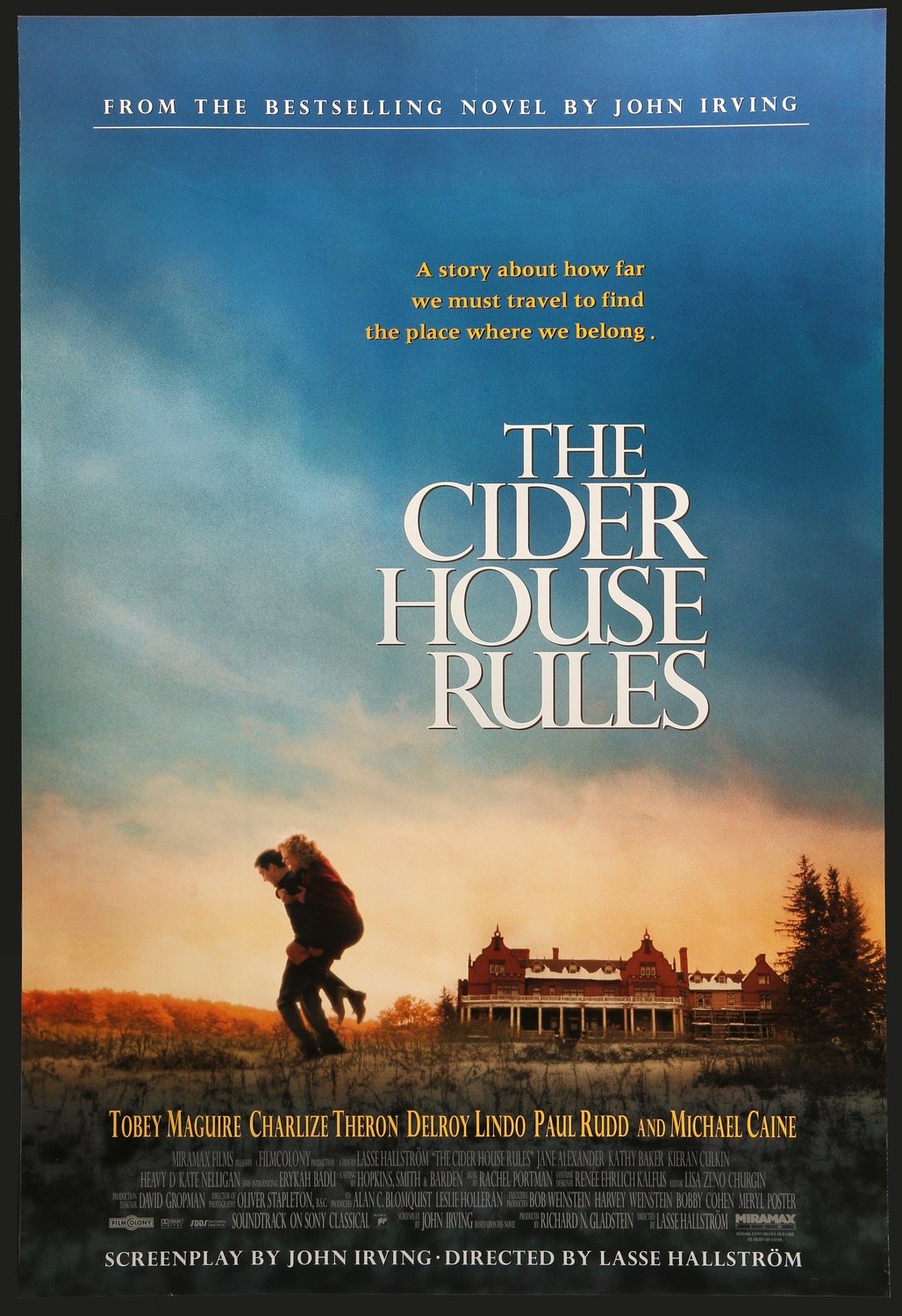
- Starring
- Tobey Maguire, Charlize Theron, Michael Caine
- Writer
- John Irving
- Director
- Lasse Hallström
- Rating
- PG (Canada), PG-13 (United States)
- Running Time
- 126 minutes
Overall Score
Rating Summary
Some films exist solely for awards and little else. Everyone has seen them or have heard of them. Chances are that unless viewers are avid movie awards watchers, they’ve probably never heard of them or let alone seen them, films like A Beautiful Mind, The King’s Speech, The Imitation Game, The Theory of Everything, Shine, etc. Films like these are made as sickeningly tasteful and staid as possible and generally have this passionless, workmanlike, manufactured feel to them. They may win an Oscar or two but often immediately fade from the public consciousness. The Cider House Rules, with its awards-baiting premise, was nominated for seven Academy Awards and won two for Best Actor in a Supporting Role for Michael Caine’s performance and Best Adapted Screenplay for John Irving screenplay. And yet it’s been promptly forgotten about by the general public since then. One wonders why…but not really though.
The Cider House Rules is an adaptation of John Irving’s novel of the same name. Its story follows a man named Homer Wells (Maguire) who lives in a World War II–era Maine orphanage run by Dr. Wilbur Larch (Caine), and his journey after leaving the orphanage. The film tackles many subjects starting with the mentality of a lifelong orphan. One might imagine it being a very lonely, isolating experience, even when being tended to by a pseudo-parental-figure like Dr. Larch. Taking rejection so many times must not be easy emotionally. The film seems like it’s going to explore Wells’ psychology but drops this angle fairly quickly in favor of going from one saccharine journey plot point to another. Meanwhile, it is also way too frontloaded for its own good.
Besides giving a half-hearted gesture to how orphanages are run, The Cider House Rules also attempts such themes as mentor or father figures, rape, incest, race issues, the working class, and abortions. It fails at doing justice to mentor or father figures as Larch is such a one-dimensional hagiographic creation beyond just his irritating and forced catchphrase. It barely skims the surface of Rose’s (Erykah Badu) toxic relationship with her father Arthur (Delroy Lindo), let alone how they, as Black people, have to function in a World War II-era society prejudiced against them. Viewers see women getting abortions at the orphanage, and Wells showing some discomfort about it which is never truly resolved in a satisfying or meaningful manner.
The film also seems to want to suggest that Wells is wrong for wanting to leave the orphanage and map out a life outside of it. The question many will be left asking themselves is what more does the orphanage have to offer him besides having him caring for the orphans? There are many moments where he seems to be finding his own identity in life and the film never makes a very compelling argument for staying. There could’ve been an interesting meditation between personal spiritual fulfillment and obligation to do what’s moral and just but this never happened here. Not helping the film’s case is that Wells as a character is just plain unlikeable due to Maguire’s performance. He is perpetually inert and wooden, lacking the charisma to be a credible everyman protagonist. He also lacks chemistry with Theron, who is far more interesting and charismatic as love interest Candy Kendall. Her storyline arguably was more worth following but ends up got the short shrift.
As mentioned, The Cider House Rules possesses a very workmanlike feel. Hallstrom doesn’t seem to have much interest in the story he’s being tasked to tell, and it definitely reflects in every element of the production. The production design looks like it could be any sort of folksy World War II-era locale. The Maine orphanage has very little distinct identity, and there’s this rather colorless feel to the whole affair throughout. Some people will defend the score as a highlight but it gets repetitive real fast and only further makes the film feel like a Lifetime or Hallmark movie one is rather ‘supposed’ to watch on television while trying to fall asleep.
Caine’s Oscar win might be one of the worst win in this category. It is saddening how he seemed to be sleepwalking throughout, merely how dispassionate he appeared. His delivery of Larch’s catchphrase could not be more insincere if he actually tried. He somehow manages to drag down the film even more whenever he’s on screen. It’s hard to ever believe Larch has any sort of meaningful relationship with Wells while there’s a feeling of unimportant coldness within his “tragic” death scene.
In the end, hopefully awards seasons have moved past this blatant type of maudlin Oscar bait dreck. Viewers shouldn’t feel bad if they haven’t heard of The Cider House Rules as they are really not missing anything. Just go watch The Sixth Sense.
still courtesy of Miramax
Follow me on Twitter, Instagram, and Letterboxd.
If you liked this, please read our other reviews here and don’t forget to follow us on Twitter or Instagram or like us on Facebook.
Discover more from
Subscribe to get the latest posts sent to your email.

